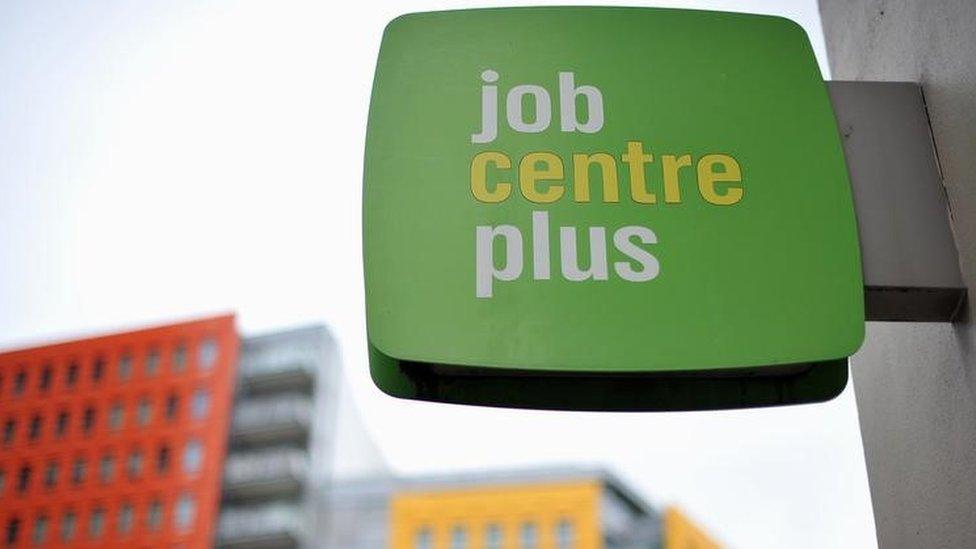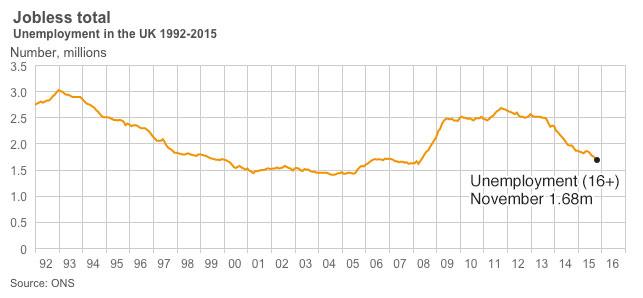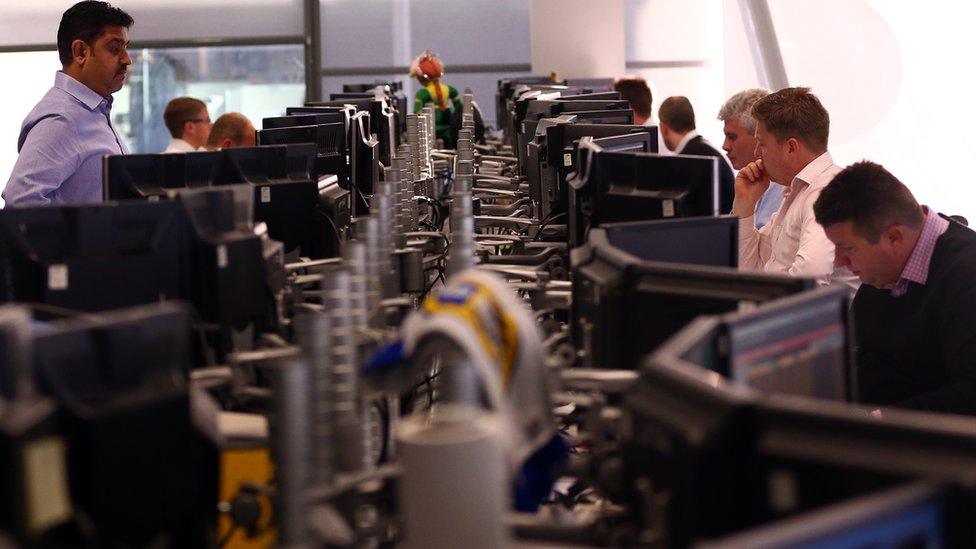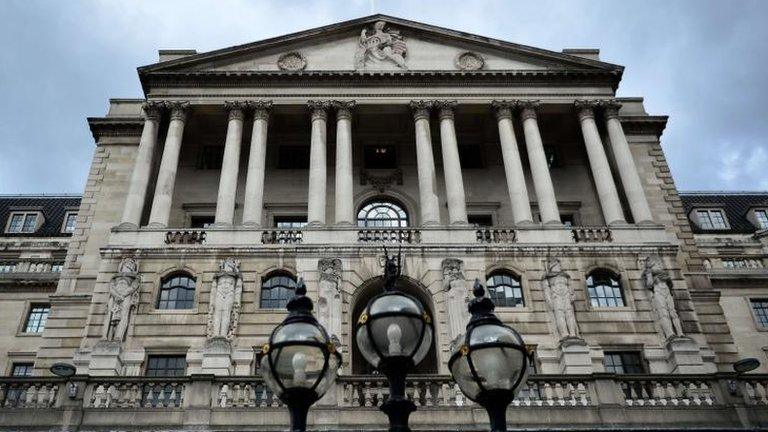UK jobless rate at 10-year low but wage growth slows
- Published

The UK unemployment rate has fallen to its lowest rate in more than a decade but wage growth has slowed.
The rate hit 5.1% in the three months to November - its lowest rate since the three months to October 2005, according to the Office for National Statistics, external.
The number of people out of work fell by 99,000 to 1.68 million in the three-month period.
Average weekly earnings, including bonuses, were up 2%, the slowest increase since February.
The 2% growth in wages was below the 2.1% growth forecast in a Reuters survey.
Excluding bonuses, average weekly earnings growth slowed to 1.9% in the three months, the ONS said.
The figures show that the employment rate hit 74% - the highest since comparable records began in 1971.

Interest rates
The figures come a day after Bank of England governor Mark Carney ruled out an early rise in interest rates because of the turmoil in the global economy and weaker UK growth.
A sustained improvement in wage growth was one of the factors he said would help the Bank to gauge when to raise rates.
He has previously said he would like to see earnings growth at above 3% a year before rates are increased.
Capital Economics economist Ruth Miller said the figures confirmed an interest rate hike "is still some way off".
"There still seems very little inflationary pressure coming from the labour market," she added.
Martin Beck, senior economic advisor to the EY ITEM Club, the forecasting body of accountancy firm EY, said the jobless rate was now below the pre-crisis average of 5.2%, yet it had not triggered excessive pay growth:
"The latest pay numbers will exacerbate concerns raised in recent MPC meetings that very low inflation may be pushing down pay settlements, threatening a negative feedback between wages and prices.
"That the first post-crisis rate hike may be pushed back into 2017 is looking an ever-more realistic possibility."

Growing workforce
The latest ONS figures show that almost 23 million people are now in a full-time job, 436,000 more than a year earlier, while 8.4 million are working part-time, up by 152,000.
The number of workers in part-time jobs wanting a full-time post is 1.2 million, down by 21,000 in the latest three months.
Economic inactivity, counting people on long-term sick leave, looking after a relative or who have given up looking for work, fell by 93,000 to just under nine million, the lowest since the spring of 2014.
The inactivity rate for women reached a record low of 27%.
The figures for unemployment in the three months to the end of November are based on the Labour Force Survey, in which the ONS speaks to 40,000 households once a quarter, making it the country's biggest household survey.
The ONS is 95% confident that the figure of a 5.1% rate of unemployment is correct to plus or minus 0.2 percentage points - in other words, it's between 4.9% and 5.3%.

Have you begun a new job within the last six months? Let us know about your experiences. Email haveyoursay@bbc.co.uk, external with your stories.
Please include a contact number if you are willing to speak to a BBC journalist. You can also contact us in the following ways:
WhatsApp: +44 7525 900971
Send pictures/video to yourpics@bbc.co.uk, external
Tweet: @BBC_HaveYourSay, external
Send an SMS or MMS to 61124 or +44 7624 800 100
- Published19 January 2016
- Published7 January 2016
- Published19 January 2016

- Published14 January 2016
